 I watch Netflix series that don’t make sense on the surface for me to watch. But when I look, there is no book, no fiction, that would teach me the principle Source tells me to learn.
I watch Netflix series that don’t make sense on the surface for me to watch. But when I look, there is no book, no fiction, that would teach me the principle Source tells me to learn.
I am looking for principles. Principles are a lot like laws. According to the dictionary, a principle is a fundamental truth or proposition that serves as the foundation for a system of belief or behavior or for a chain of reasoning.
When things don’t work, there is something you don’t see… when things don’t work, most of the time what you don’t see is that the principle or principles upon which you build the thing that isn’t working, are not sound principles.
If your premises are false, wrong, or mistaken, whatever you build on it won’t work.
Most of humanity’s life is a history of false premises. All the statements of what humans are supposed to do, allowed to do, are false premises, popped out of someone’s near-sighted, or skewed brain.
Most schools of thoughts are centered around some principles… and are flawed.
The way I test this is asking Source: what is the truth value of that? Where Source looks is in the principles, in the premises.
If the principle is wrong, the whole construct is wrong. It is that simple.
So a principle is like the foundation of a building… crucial.
Most memes, most truisms, most quotes shared on the internet are flawed principles, or are based on flawed principles.
 The Socratic process, asking questions instead of uttering unbaked ideas, or repeating true-sounding b.s. is to get to the foundation of what someone says and getting to seeing clearly the unsound, untrue, false foundation of the true-sounding b.s.
The Socratic process, asking questions instead of uttering unbaked ideas, or repeating true-sounding b.s. is to get to the foundation of what someone says and getting to seeing clearly the unsound, untrue, false foundation of the true-sounding b.s.
Socrates was a philosopher in ancient Athens. His process, his methodology of asking questions, taught the students to think… and see… and was dangerous to the political world: thinking, seeing people cannot be duped easily. So Socrates was forced to commit suicide.
Not much has changed since ancient Athens.
We could say, that being exposed the underlying b.s. in everything is the secret to becoming a clear thinking human… who can become a human being.
The three-step methodology I teach is the process of desensitization… a version of the Socratic method… in a way.
The Netflix series that gave me the word is about a lawyer, a criminal defense lawyer in Australia. He gets a client whose home-video with him, a masked woman, and a doberman.
 There is no law that deals specifically with sex with animals, but the public opinion, and therefore the jury considers it a big deal.
There is no law that deals specifically with sex with animals, but the public opinion, and therefore the jury considers it a big deal.
The goal is to make the contents of the video, sex with the doberman, a yawning, so-what matter.
They do this with forcing the whole court to watch the video hundreds of times.
Familiarity breeds boredom, contempt, and a sense of normalcy.
By the end of those hundreds of views, the jury votes: not guilty.
In the methodology we employ we do this with the voices, and with the memes, and with the ‘marker feelings’ drama.
 When you see (or hear) something that is designed to make you jump, or feel guilty, it makes you jump, or makes you feel guilty.
When you see (or hear) something that is designed to make you jump, or feel guilty, it makes you jump, or makes you feel guilty.
But if I ask you to observe it as a MOVE to make you jump, a MOVE to make you feel guilty, to watch as a scientist watches, with detachment, eventually the voice loses its power on you… and you’ll neither jump, nor feel guilty.
There are hundreds of voices… so this is not a short process.
It is hard to listen with detachment in the beginning… but eventually it will get easier, and you get over the hump, and easier also means faster.
Your job is to keep doing it and doing it and doing it.
The result is amazing: you find yourself in possession of a good mind, in possession of a lot of time that you can do good with.
Poised to become a human being, to start growing in earnest, if you want.
Any discipline that promises you this, but doesn’t do the three step work is lying.
There is no money for a teacher teaching the three step process, because the ball is handed over to the student…
The way to make a lot of money is to keep the ball… And make students come back for the ball.
By the ball I mean ‘the power’.
I don’t care about money, other than being able to pay my bills, and I never have.
So my work was always about handing the power over to you.
Now… some disciplines, like Landmark Education, my ‘alma mater’ have some of the truth, but not all the truth. So even if they handed the power over to you, you would not be completely empowered to do the work that is necessary to become all you can become.
In fact, my ‘bad’ reviews of nearly everything I have reviewed is a testimony that the truth on which well-meaning programs are based are partial truths, very very partial truths, and only the whole truth put in practice would give you what they promise.
Every discipline has a grain of truth in it, but a grain of truth means: the whole discipline built on incomplete truth cannot give you what they promise.
 This is most obvious with the law of attraction/manifestation ‘discipline’…
This is most obvious with the law of attraction/manifestation ‘discipline’…
And because it looks effortless, and because it looks easy, billions of unquestioning, foggy brained people flock to it…
Most people want money without having to do what it takes to make money. Without having to learn skills, having to learn the law of physics, without having to know mathematics, without having to have any knowledge whatsoever.
They ask: how do I raise my vibration to the vibration of money? Even the question gives their ignorance away: money has no vibration. Things, ideas do…
 If this vibration of money idea were true, then people with vibration of 130 would not be making money, but they do. They even teach others, coach others on how to make it.
If this vibration of money idea were true, then people with vibration of 130 would not be making money, but they do. They even teach others, coach others on how to make it.
Did you see the Socratic question suddenly putting a question mark about the soundness of the principle?
So if it is not vibration, then what? Is it possible that they are willing to do things that other people aren’t? Hm…
And isn’t that they spent their years learning stuff, sharpening skills, reading, cultivating relationships… that you, hoping you will manifest, aren’t willing to do?
Tai’s 67 steps has a lot of flawed principles, or good principles he misunderstands, he misinterpret for you.
But if you look at him, he is this perpetual learning machine. Perpetual experimenting machine. Perpetual implementing machine.
Have you been doing all the things he recommends that you test?
No, right? You don’t want to. It sounds like work. You are too busy trying to manifest… lol.
Tai’s stuff is 10% truth value. Nothing hokey [note]hokey means: obviously fake. : very silly, old-fashioned, or sentimental.[/note] … just not the whole truth, and some interpretations are off… but all in all, not bad.
Just like in elementary school you didn’t learn the whole science of mathematics: you learned your multiplication tables.
Tai’s 67 steps is a great stepping stone to take you from completely mindless, completely doing the wrong thing based on completely wrong principles, into a person who at least is looking 360 degrees, or close to it.
People talk about the caterpillar and the butterfly.
The 67 steps may be the most effective move for a caterpillar if they want to get on the path to butterfly…
Because if you examined the people who think they are ‘butterfly people’, you would find that they are ignorant, knowing one thing and only one thing, and know one principle or maybe two… and they think they know the world, they think they are there… the Promised Land.
This is what we call delusional…
Plato has a famous allegory… comparing something with something easier to describe… that’s an allegory.
In the cave allegory:
Plato has Socrates describe a group of people who have lived chained to the wall of a cave all of their lives, facing a blank wall.
The people watch shadows projected on the wall from objects passing in front of a fire behind them, and give names to these shadows. The shadows are the prisoners’ reality.
Socrates explains how the philosopher is like a prisoner who is freed from the cave and comes to understand that the shadows on the wall are not reality at all, for he can perceive the true form of reality rather than the manufactured reality that is the shadows seen by the prisoners.
The inmates of this place do not even desire to leave their prison; for they know no better life. The prisoners manage to break their bonds one day, and discover that their reality was not what they thought it was. They discovered the sun, which Plato uses as an analogy for the fire that man cannot see behind. Like the fire that cast light on the walls of the cave, the human condition is forever bound to the impressions that are received through the senses. Even if these interpretations (or, in Kantian terminology, intuitions) are an absurd misrepresentation of reality, we cannot somehow break free from the bonds of our human condition – we cannot free ourselves from phenomenal state just as the prisoners could not free themselves from their chains.
If, however, we were to miraculously escape our bondage, we would find a world that we could not understand – the sun is incomprehensible for someone who has never seen it. In other words, we would encounter another ‘realm,’ a place incomprehensible because, theoretically, it is the source of a higher reality than the one we have always known; it is the realm of pure Form, pure fact.
The quote is from Wikipedia.
What Plato describes is the human condition.
Philosophers’ job is to penetrate reality. To the degree they do, to the accuracy they do, gives us their theories’ truth value.
We cannot know reality, but we can approach reality to some extent.
We, humans, are not equipped to know reality to its fullest. Partially because reality is too big. And partially because the mind tends to limit us: theory induced blindness… once the mind jumps into conclusion, it acts as a filter, filtering out everything that doesn’t match the theory.
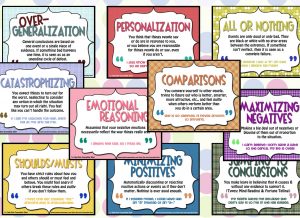 This filtering function of the mind is its most important function: if you are a ‘victim’, you’ll only see what matches that paradigm. If you are a ‘drama queen’, the mind will only show you want is matching that.
This filtering function of the mind is its most important function: if you are a ‘victim’, you’ll only see what matches that paradigm. If you are a ‘drama queen’, the mind will only show you want is matching that.
The three step method I put together from stolen parts (stole from Landmark Education, Tai Lopez, The Feelings book, Aristotle via Ayn Rand, and maybe more…) is effective in removing the filter of the mind so reality can get through, so you can come out of the cave and see and maybe even understand what you see.
Don’t forget: only when you interact with reality the way reality is, that you can be effective. Killing the shadow of a man doesn’t harm the man… for example.
We don’t use big words that no one can really define, as ego, soul, not even faith… They are all shadow words, keeping you in the cave.
We are interested in using words that mean the same in the cave and outside of the cave… so when you finally come out of the cave, you’ll recognize and see things for what they are.
It’s a long process. And some of it is painful. Letting go of the filters is painful. Letting go of false principles is painful. Maybe even letting go of the drama is painful: what is left? The fear of emptiness.
But it’s worth it. Because what else are you going to do with you life? Stay in the cave?
Read the original article: Desensitizing you to the mind-noise vs. principles